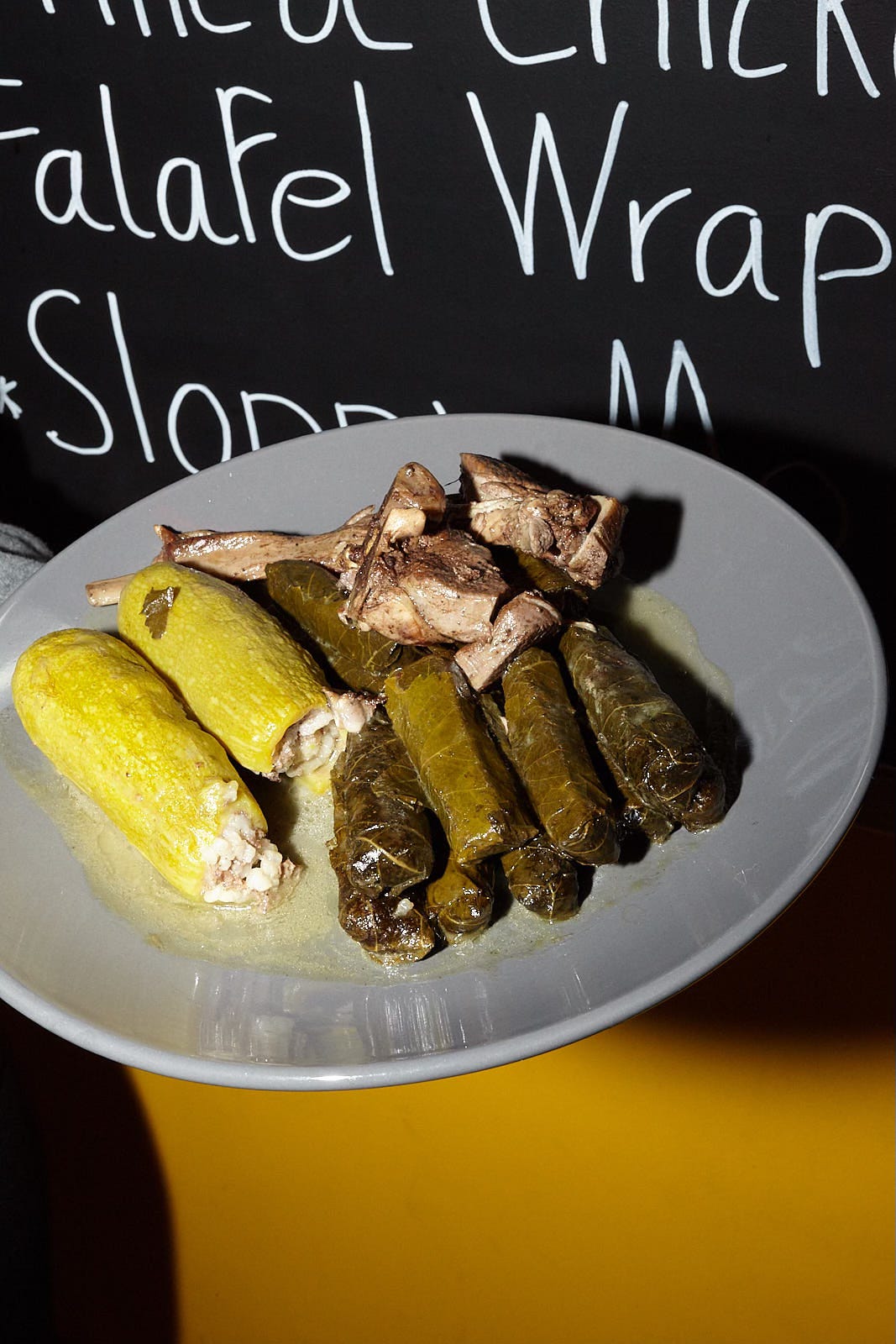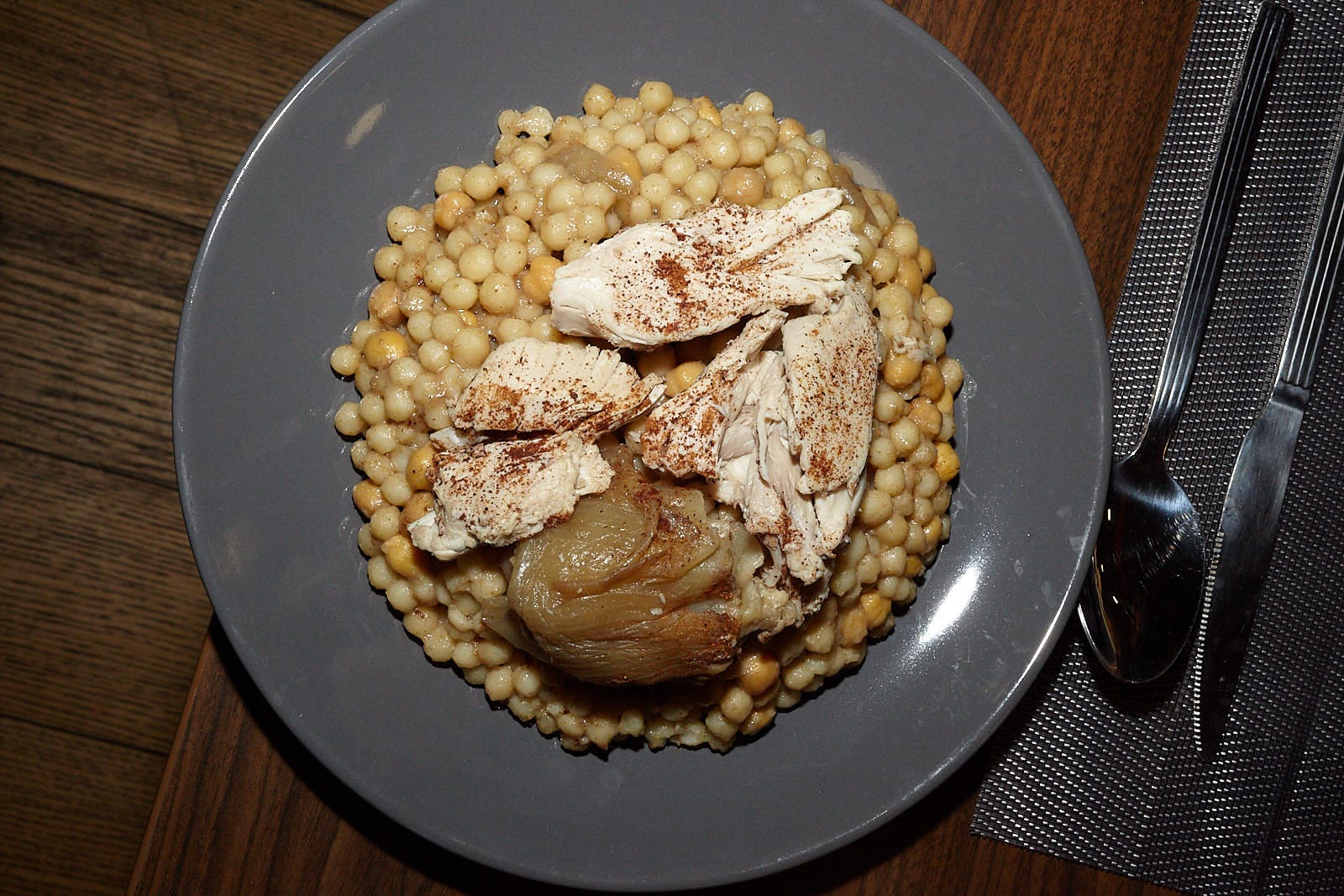Vittles Reviews: A Love Story
How Modo’s became London’s most interesting Lebanese restaurant, by Zayneb Al Asaadi. Photographed by Michaël Protin.
Welcome back to Vittles Restaurants. Today’s essay is by Zayneb Al Assadi, who you will know as one of our regular contributors to Six of One. Today Zayneb writes her first feature length review of Modo’s and breaks down how it became the most interesting place in London to experience Lebanese cuisine.
Vittles Reviews is a column dedicated to critical reviews of London restaurants, normally written by Jonathan Nunn, who is away this week. You can read all his previous Vittles reviews here along with six recommendations from Six of Nunn last Friday. To read all past recommendations and today’s newsletter in full, please subscribe for £7/month or £59 for the whole year.
A love story
How Modo’s became London’s most interesting Lebanese restaurant, by Zayneb Al Asaadi
In 2020, Mohammed and Dunia Baadarani – or Mo and Do, as they are affectionately known – were finally talking about retirement. After a successful three decades in hospitality, it felt like the time was right to enjoy the fruits of their labour: a quiet home in the mountains, surrounded by fresh produce and beautiful vistas with time for themselves and the occasional frantic calls coming in from their children about how to make kibbeh. Dunia, the matriarch of her family, had been renowned for her excellent Beiruti cuisine – her shish barak and stuffed vine leaves took centre stage at every family gathering. Her husband, Mohammed, had owned a Lebanese fast-food restaurant called Abu Kareem – ‘Father of Kareem’ – in Beirut for more than 20 years. It’s common to refer to parents by their eldest child’s name, but none of Mohammed’s children were called Kareem – the name also means generous and bountiful, the values that defined his restaurant. But then Lebanon’s economic crisis hit, devaluing the currency by up to 98 percent and sending inflation soaring past 150 percent. They decided to start again, closer to their daughter Tala in London, and in 2022, Modo’s was born in Acton.
Modo’s began as a dark kitchen delivering weekly cooked meals to the various Arab communities in west London. Its regular customers ranged from diners new to the cuisine but appreciative, to the diaspora afflicted by ‘ghorba’ (estrangement/absence from the motherland that is a distinct phenomenon in Arab society and especially Lebanon where the diaspora exceeds those that live there). The nature of the family run operation and regular customer base meant that Dunia got to know the palates of those eating her food – the quirks of the diners at the other end of the WhatsApp messages. Modo’s grew in popularity with dishes like her shish barak, warak enab, kibbeh bil laban and kofta with vermicelli rice. The couple’s first in-person experience came at the Standard Market in North Acton, where they relished direct interactions with customers at a monthly pop-up. Soon after, they were invited by the Foundry Collective to run the kitchen at its community hub in Park Royal, alongside a bar, café, and shop showcasing local artists. They named it Munch by Modo’s.
Located among Imperial College halls, industrial estates, and music studios, Modo’s seems to feel a duty of care towards its plural clientele that goes beyond the provision of meals. On my first visit to the space at the Foundry Collective, I watched a familiar scene unfold: a Singaporean student tried to pay her bill, but the owners refused. Her mother had dined at the restaurant just after dropping her off at university, and had asked Dunia and Mohammed to look after her daughter: a duty they took seriously. They checked in on her studies, made sure she was eating enough, and ushered out dishes they felt she had to try. It struck me then: Modo’s had captured something rare, an authentic aura of home, one that could be both felt and tasted.





